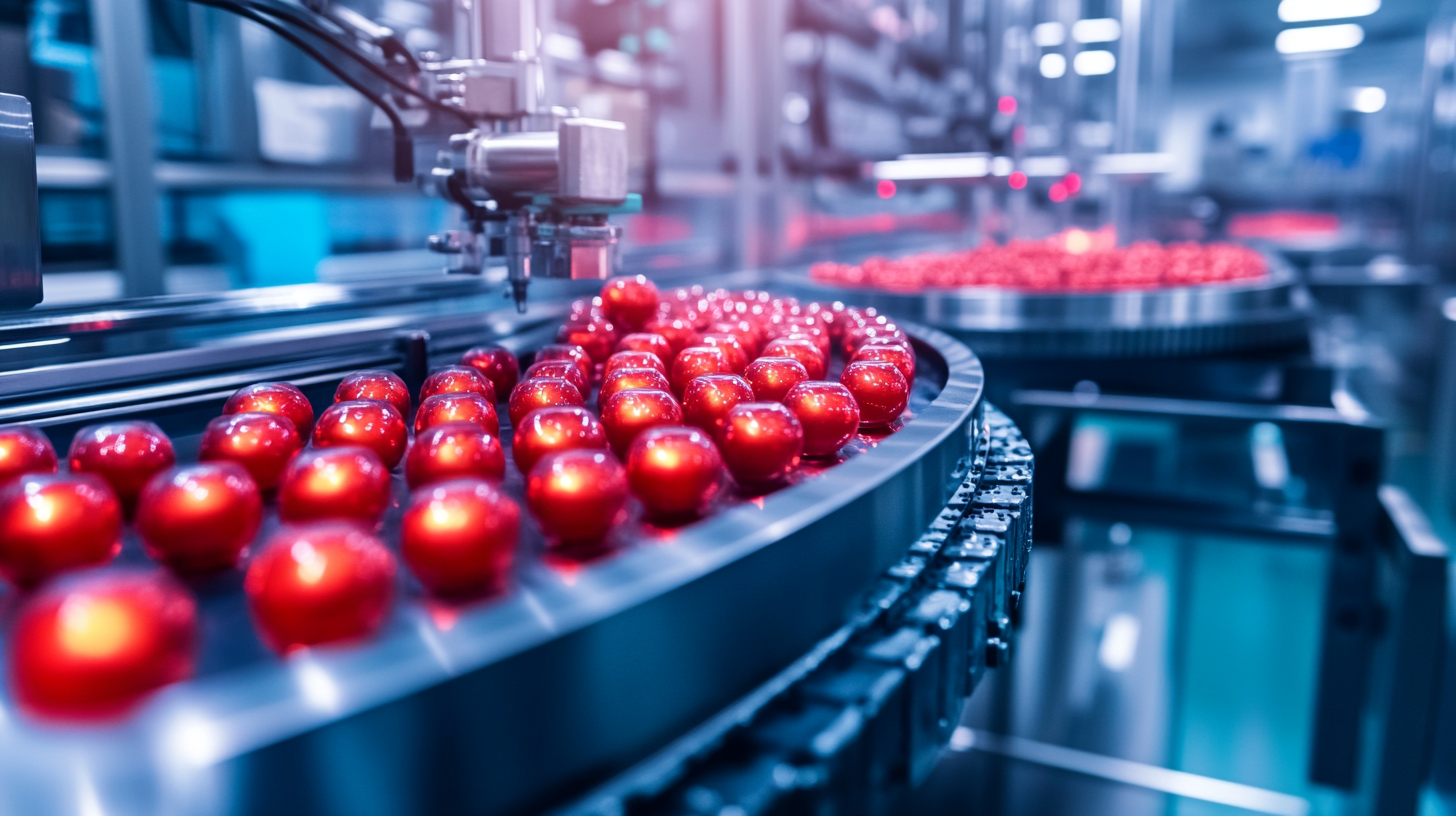A-B-C Blog
Selecting the Best Packing Machine Manufacturer by Analyzing Industry Standards and Innovations
 In today's competitive market, selecting the right packing machine manufacturer is crucial for businesses aiming to enhance their operational efficiency and product quality. The landscape of packing technology is constantly evolving, driven by industry standards and innovations that can significantly impact manufacturing processes. With a plethora of options available, it becomes imperative for companies to conduct a thorough analysis of potential manufacturers, focusing on their adherence to industry standards and their ability to integrate the latest technological advancements into their packing machines. This blog will guide you through a systematic approach to evaluating packing machine manufacturers, helping you make informed decisions that align with your business needs and ensure a successful investment in packing solutions.
In today's competitive market, selecting the right packing machine manufacturer is crucial for businesses aiming to enhance their operational efficiency and product quality. The landscape of packing technology is constantly evolving, driven by industry standards and innovations that can significantly impact manufacturing processes. With a plethora of options available, it becomes imperative for companies to conduct a thorough analysis of potential manufacturers, focusing on their adherence to industry standards and their ability to integrate the latest technological advancements into their packing machines. This blog will guide you through a systematic approach to evaluating packing machine manufacturers, helping you make informed decisions that align with your business needs and ensure a successful investment in packing solutions.
Understanding Current Industry Standards for Packing Machines in 2025
In 2025, the packing machine industry is expected to see significant advancements driven by technology and sustainability demands. Industry standards will evolve to prioritize efficiency, reliability, and environmental impact. According to a report by Mordor Intelligence, the global packaging machinery market is projected to grow at a CAGR of 5.7% over the next few years, indicating a strong trend towards automation and smart technology integration. Manufacturers will need to adopt these innovations to stay competitive, focusing on energy-efficient designs and minimizing waste in their operations.

When selecting the best packing machine manufacturer, consider the latest industry certifications that ensure compliance with safety and quality standards. For instance, ISO 9001 certification guarantees that manufacturers adhere to quality management principles, which is crucial for long-term reliability. Additionally, familiarize yourself with the 2025 sustainability benchmarks, such as reduced carbon footprint and recyclability of materials, which are becoming increasingly important in the packing industry.
Tip: Evaluate potential manufacturers not just on cost but also on their commitment to innovation and sustainability. Look for companies that invest in R&D to adapt to changing industry standards, as this can be an indicator of their capability to meet your long-term packing needs.
Tip: Attend industry trade shows and workshops to stay updated on advancements in packing technology and meet potential manufacturers face-to-face, allowing for a better-informed decision-making process.
Key Innovations Shaping the Future of Packing Machine Manufacturing
As the packaging machine manufacturing industry evolves, several key innovations are driving its future. The tea packaging machine market, for instance, is projected to witness significant growth from 2025 to 2035, as brands leverage high-speed and precision-driven packaging technologies to meet rising consumer demands. Such advancements not only streamline the packaging process but also enhance product freshness and presentation, key factors that appeal to increasingly discerning consumers.

In addition, the personal care packaging market is expected to reach USD 71.1 billion as brands focus more on improving aesthetic designs to attract customers. This trend highlights the vital role that innovative packaging solutions play in differentiating products in a competitive market. Furthermore, the pharmaceutical sector is following suit, with the market for secure pharmaceutical packaging projected to rise, driven by the growing online sales and the need for tamper-proof solutions. Collectively, these trends underscore the pressing need for packing machine manufacturers to stay ahead of technological innovations to meet diverse industry demands.
Evaluating Manufacturer Reliability Through Industry Certifications and Compliance
When selecting a packing machine manufacturer, evaluating their reliability through industry certifications and compliance is crucial. Certifications such as ISO 9001, which ensures quality management systems, can indicate a manufacturer's commitment to high standards. Compliance with regulations set by organizations like the FDA or CE marks ensures that the machines meet safety and quality requirements specific to certain markets. These certifications not only reflect a manufacturer's adherence to industry norms but also their investment in continuous improvement and customer satisfaction.
Furthermore, it’s essential to assess how actively manufacturers engage with the latest industry innovations. Staying ahead in technology can be a sign of a forward-thinking company ready to adapt to evolving market demands. Manufacturers compliant with environmental regulations, such as ISO 14001, also demonstrate a commitment to sustainability, which can be a deciding factor for modern businesses focusing on eco-friendly practices. By prioritizing manufacturers with these credentials and a proven track record, businesses can ensure they partner with reliable suppliers who prioritize both quality and innovation.
Selecting the Best Packing Machine Manufacturer by Analyzing Industry Standards and Innovations
| Manufacturer Location | Industry Certification | Innovation Index | Compliance Rating | Sustainability Initiatives |
|---|---|---|---|---|
| Germany | ISO 9001, CE | 8.5/10 | High | Active Recycling Programs |
| USA | ISO 14001, ANSI | 9.0/10 | Very High | Renewable Energy Usage |
| Italy | ISO 22000 | 7.8/10 | Moderate | Biodegradable Materials |
| Japan | JIS, ISO 9001 | 9.5/10 | High | Energy Efficiency Programs |
| China | ISO 9001 | 8.0/10 | Moderate | Waste Reduction Strategies |
Importance of Customization and Flexibility in Packing Solutions
In today's rapidly evolving market, the importance of customization and flexibility in packing solutions cannot be overstated. Manufacturers must recognize that a one-size-fits-all approach is often inadequate for meeting diverse consumer needs and industry requirements. Customized packing machines not only enhance the efficiency of packaging processes but also enable businesses to accommodate various product types, sizes, and shapes, allowing them to stand out in a competitive landscape.
When selecting a packing machine manufacturer, prioritize those that emphasize customization. Ask potential partners about their ability to tailor machines to specific applications and product lines. Flexibility should also be a key consideration; look for equipment that can easily adapt to changes in production volume or packaging requirements, ensuring scalability as your business grows.
Tips for evaluating packing machine manufacturers include researching their track record for innovation and responsiveness to customer feedback. It's beneficial to visit their facilities if possible and observe their machinery in action. Additionally, check for certifications that demonstrate compliance with industry standards, as this can be a good indicator of their commitment to quality and customization. By focusing on manufacturers that prioritize these factors, businesses can secure packing solutions that drive efficiency and profitability.
Assessing Cost-Effectiveness vs. Quality in Packing Machine Selection
When selecting a packing machine manufacturer, one of the most crucial considerations is the balance between cost-effectiveness and quality. In a highly competitive market, businesses are often tempted to opt for cheaper solutions to reduce upfront costs. However, this approach can lead to bigger expenses down the line, including increased maintenance, lower output quality, and higher failure rates. It’s essential to evaluate not just the initial price tag but also the long-term reliability and efficiency of the machinery.
On the other hand, prioritizing quality can significantly enhance operational productivity and reduce wastage. High-quality packing machines tend to have advanced features that improve speed and accuracy, yielding a better return on investment over time. As companies analyze their needs, investing in machines that meet industry standards while embracing the latest innovations can result in more efficient processes. Employers should weigh these factors carefully, as the right manufacturer can provide both cost-effective solutions and high-quality machinery that aligns with their operational goals.






